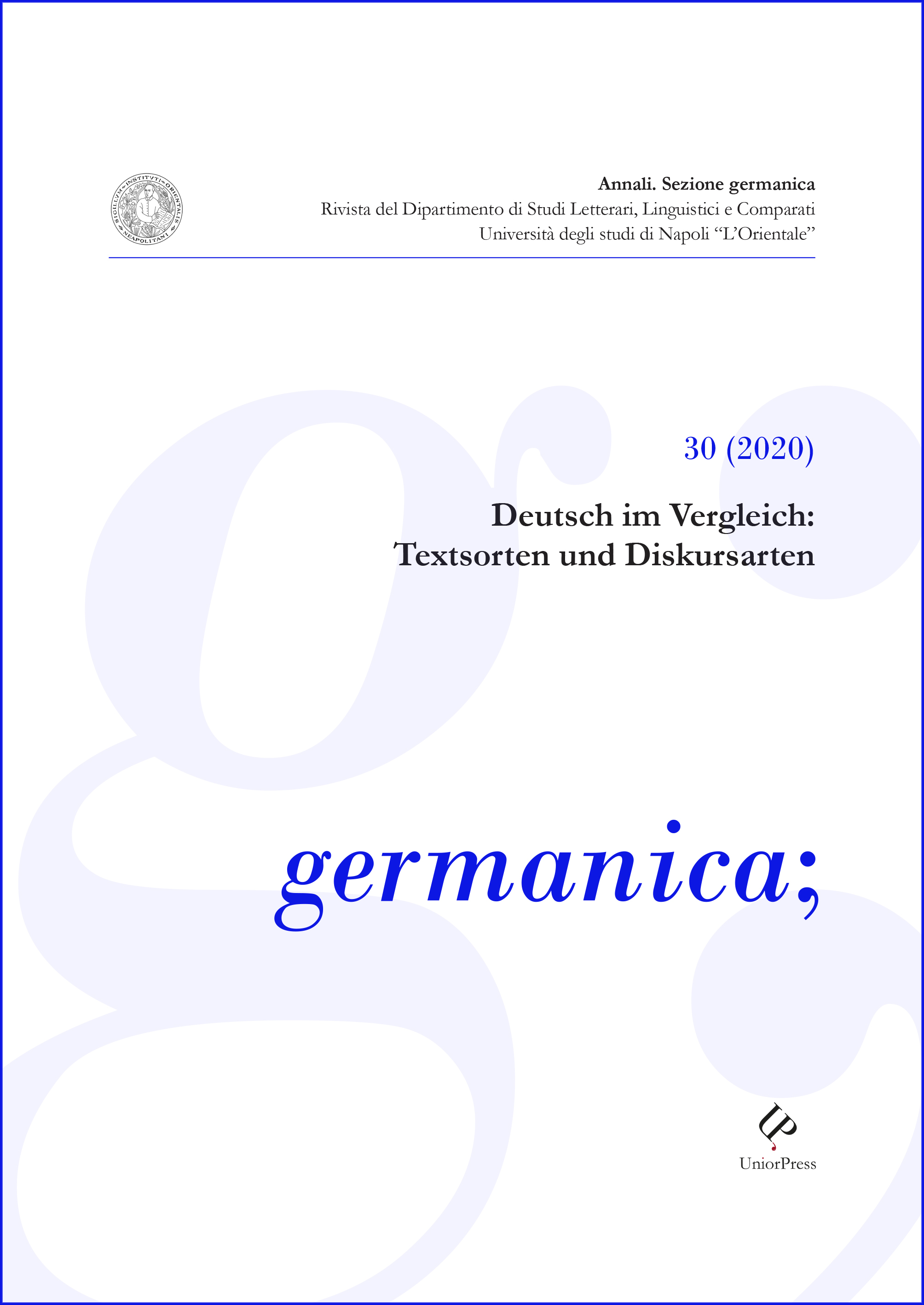The Emotive Function of Addressing. An Empirical Analysis Based on German-Italian Political Facebook Comments
Abstract
This study aims to investigate the emotive function of forms of address. Despite the customary propensity of the (linguistic) sciences to marginalise the problematic issue of emotional expression, emotionality still plays a fundamental role in understanding the correct use of forms of address. Indeed, terms of address are capable not only of expressing the power dynamic that obtains between interlocutors, they are also a mark of the speakers’ respective psychological attitudes.
As far as methodology is concerned, the emotive function of forms of address will be analysed by considering a corpus of Facebook comments addressed to German and Italian politicians.
The analysis pays closer attention to the correlation between the emotive value of the forms of address and the female identity of the addressees and its relevant communicative consequences.
This work focuses, finally, on the specific use of the forms of address in German and in Italian. This contrastive aspect highlights not only linguistic but also cultural features.
Gli autori che pubblicano su questa rivista accettano le seguenti condizioni:
- Gli autori mantengono i diritti sulla loro opera e cedono alla rivista il diritto di prima pubblicazione dell'opera, contemporaneamente licenziata sotto una Licenza Creative Commons che permette ad altri di condividere l'opera indicando la paternità intellettuale e la prima pubblicazione su questa rivista.
- Gli autori possono aderire ad altri accordi di licenza non esclusiva per la distribuzione della versione dell'opera pubblicata (es. depositarla in un archivio istituzionale o pubblicarla in una monografia), a patto di indicare che la prima pubblicazione è avvenuta su questa rivista.
- Gli autori possono diffondere la loro opera online (es. in repository istituzionali o nel loro sito web) prima e durante il processo di submission, poiché può portare a scambi produttivi e aumentare le citazioni dell'opera pubblicata (Vedi The Effect of Open Access).

